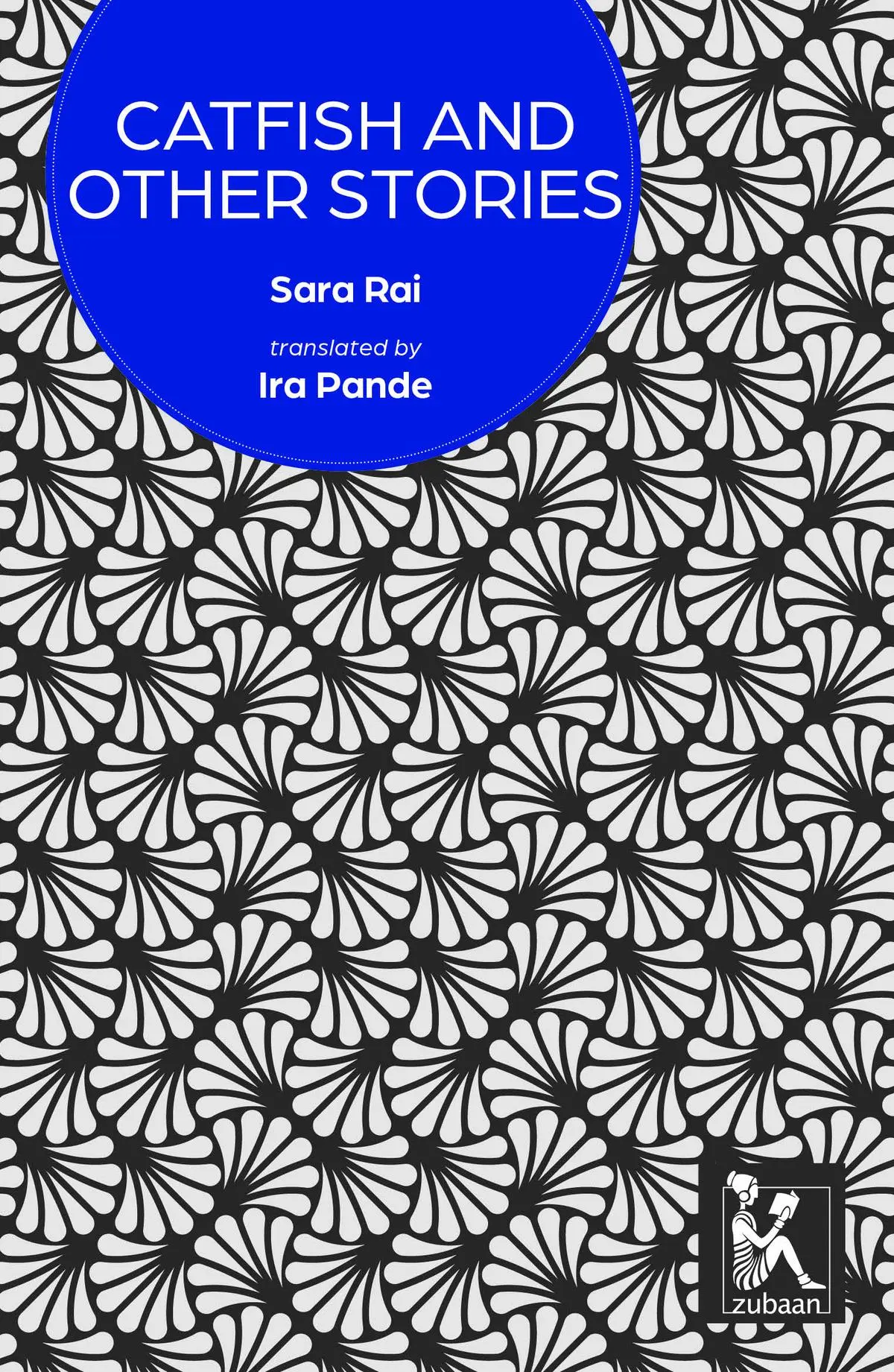They were catfish. Seven catfish thrashing about in a flat tray made of white Styrofoam. Their skin was dark grey and smooth, their moustaches big and black. They were huddled close together, tail to mouth, moustache to back, their movement arrested at the edge of the tray for they could go no further. A small fish was almost stuck to a big one. The big one was very big. The fishes seemed hungry—they were opening and closing their mouths rapidly. When the mouth was open, you could see a small dark cave in there that looked a little scary.
Standing next to the tray and not in the least frightened, a boy who must have been eight or nine years old, was trying to poke his finger into their nostrils. Occasionally, the catfish would wriggle restlessly and leap into the air. The boy moved back when this happened, but soon he’d be at it again. Perhaps he was the fishmonger’s son. A couple of times, it seemed as if the big fish would leap out of the tray. Then it fell back into it, looking lifeless. But it was still breathing. It looked dead when it lay there without stirring. But it would soon start moving restlessly again.
Also Read | Coolie
The eye of the big fish that was facing Surabhi looked like a small grey moon. It seemed to be sightless but perhaps this was its superficial eye, the one that it could see with might be another eye altogether, thought Surabhi. Maybe inside the eye that was visible, the catfish had other eyes and they kept looking at some far-off place. They looked not at the bazaar, but at what was not in the bazaar. She bent down to take a closer look, and felt sure there was another eye behind the one that she could see. She thought she saw her own faint reflection in the eye of the fish and stepped back, startled. The quiet breathing of the fish made Surabhi aware of her own breathing—she noticed how her chest puffed out a little when she breathed in, and how it settled back when she breathed out.
There were herons sitting in a line on the pink wall of the Government Press. They made no sound. Every evening, around four o’clock, there was a bazaar where fish and poultry were sold. The vegetable market wasn’t far from the meat shops. The soundless fish, the quiet herons, and her own calm made Surabhi feel as if the world had frozen into a moment of silence, even though the din of the vegetable market was around her.
The hush was broken only when the big catfish leapt so high that it fell out of the Styrofoam tray. The quivering fish was quite naked. Its slimy black back had no scales. Restlessly slapping its tail from left to right, it slithered on the ground for a little distance like a snake. It was as if it wanted to get to some faraway place, a river or a lake perhaps—maybe it was guided by a primordial ancestral memory. Africa. A blazing sun and the intense humidity. The muddy black waters of a desolate river that could hardly be called a river, it was more like a swamp. The catfish fed on the small fish and the other little creatures that lived in the swamp. It wasn’t fussy, it ate whatever it could get.
Not a leaf stirred in the hot summer on that riverbank in Africa. There must have been bamboo and dry grasses that sang when the wind passed through them. Millions of years ago when the earth had just come into being and was still seeking its rhythm, an ancestor of this catfish must have used its fins to lift itself off the ground and made a blind dash in search of food. The catfish could move on dry land. It could stay alive for a short while even when it was out of water. With this instinct for survival embedded in it the catfish had been around on the earth for millions of years. It belonged to a prehistoric species. If the catfish could move on land using its fins, Surabhi wondered if it also knew the gestures of love—snuggling, nestling, nuzzling. Perhaps it still retained a physiological memory of love and in that terrible moment when it was thrashing about on the dry ground, a memory of love shot through its body like a flash of lightning.
Did its restlessness mean that there was something it wanted to say? Something secret that should always be remembered and shared with others. It was a strong, healthy fish and it certainly had a personality of its own. Surabhi felt it should have had a name, like people have names. But now it had come face to face with death. It didn’t need a name if it was going to die. It would have begun to swim again if put back into the water. It would stay alive. For it wasn’t as if the fish was already dead.

The people who had gathered around the fishmonger’s shop were enjoying the spectacle of the runaway fish. A few of them even laughed. The fishmonger prodded the catfish with a long stick and his helper boy caught it and put it back in the tray. It squirmed vigorously and almost slipped out of the boy’s hands. Finally, slathered in muck and gone quite limp, it sank back among the other fish in the tray.
Also Read | Birds of the air: A Hindi story in translation
Surabhi decided that she was being needlessly emotional. After all, this was just a fish, meant to be eaten. It would be delicious, quite fresh, for it was still alive. She knew that live catfish were the tastiest. She’d come to the market to buy fish and would return home after buying fish. It wasn’t as if she’d come here to research the history of the catfish species.
“How much?” she asked the fishmonger, pointing to the big catfish. The fishmonger’s name was Gulab, he used to come to her house to sell fresh carp caught at MacPherson Lake. When he lifted the wet gunny bag that covered his catch, a sharp, fishy pong arose. His name may have been Gulab but he was most certainly not a rose.
Gulab gutted the fish and cleaned out its insides. He kept the head aside and cut the rest of it into seven pieces. The flesh of the catfish was a healthy pink. The helper boy quickly wrapped the fish in a newspaper and handed it to her.
Surabhi had invited Manisha to dinner that evening. She didn’t wish to eat the fish all by herself. After she washed the fish, she dusted it with some flour and set it aside. She had read in a recipe that if you did this, the sharp fishy smell disappeared. After she had added ginger, garlic, onions, cumin, and turmeric the smell almost vanished. Now this catfish bore no resemblance to the live fish that she’d seen. It was fit to be eaten.
Manisha said the fish was delicious, so Surabhi shared the recipe with her. She also told her that catfish fossils were discovered in Egypt’s Whale Valley and that scientists dated these back to over three and a half million years. Both of them found it difficult to wrap their heads round the idea of this vast stretch of time. They expressed their amazement, which wasn’t really so amazing. That such an ancient creature was now inside their bellies was not amazing either. Eating and food, after all, had been the basis of life since time began.
Manisha invited Surabhi to her house for dinner the following Sunday.
Selected by Mini Krishnan
Reproduced courtesy of Zubaan
Illustrations by Siddharth Sengupta

